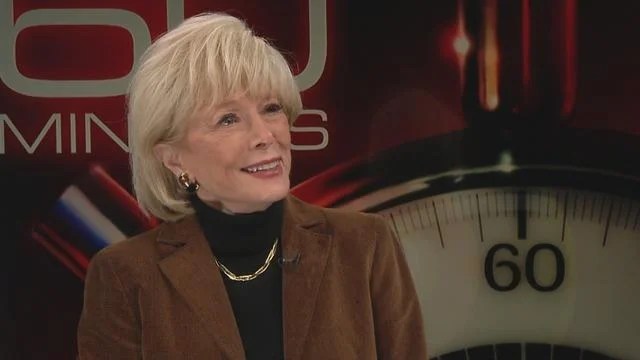When it comes to investigative journalism, few platforms have garnered as much respect and recognition as "60 Minutes." This iconic television program has been a beacon of truth and accountability, shining a light on pivotal stories and issues that shape our society. The reporters behind these compelling narratives are not just storytellers; they are seasoned journalists who dedicate their careers to uncovering the facts and presenting them in a way that engages and informs the public.
With a legacy that spans over five decades, the "60 Minutes reporters" have consistently pushed the boundaries of investigative journalism. Their work often delves into the complexities of human behavior, politics, and social issues, making headlines and sparking discussions long after the cameras stop rolling. From tackling corruption in high places to exposing hidden injustices, these reporters play a crucial role in holding power accountable.
As we explore the profiles of these remarkable journalists, we will uncover not only their professional achievements but also the personal stories that drive their passion for reporting. The "60 Minutes reporters" are not just faces on a screen; they are individuals with diverse backgrounds, compelling life experiences, and a shared commitment to journalistic integrity.
Who Are the Notable 60 Minutes Reporters?
The "60 Minutes reporters" have included some of the most prominent names in journalism. Over the years, the program has featured a rotating cast of correspondents, each bringing their unique style and perspective to the table. Notable figures include:
- Ed Bradley
- Morley Safer
- Diane Sawyer
- Lesley Stahl
- Anderson Cooper
What Makes 60 Minutes Reporters Stand Out?
One of the defining characteristics of "60 Minutes reporters" is their relentless pursuit of the truth. They are known for their in-depth research, thorough interviews, and the ability to tackle challenging subjects with grace and sensitivity. Their commitment to ethical journalism sets them apart in a rapidly changing media landscape.
What is the Impact of 60 Minutes on Journalism?
The influence of "60 Minutes" extends beyond the realm of television. The program has set a standard for investigative journalism, inspiring countless journalists to adopt similar practices in their reporting. Its impact can be seen in how stories are covered in various media outlets today.
How Do 60 Minutes Reporters Prepare for Their Stories?
Preparation is key for "60 Minutes reporters." They invest significant time in researching topics, conducting interviews, and gathering evidence before airing a segment. This thorough preparation ensures that their stories are not only engaging but also grounded in factual reporting.
What Are Some Iconic Stories Covered by 60 Minutes Reporters?
Over the years, "60 Minutes reporters" have covered a wide array of significant stories that have left a lasting impact on society. Some of the most memorable segments include:
- The Watergate scandal
- Interviews with world leaders
- Exposés on corporate malfeasance
- Investigations into social issues such as inequality and discrimination
What Are the Personal Stories Behind the 60 Minutes Reporters?
The life stories of "60 Minutes reporters" are as compelling as the stories they cover. Many of these journalists have overcome significant obstacles and challenges to reach their positions. Their personal journeys often reflect a deep commitment to social justice and a desire to make a difference through their work.
Can You Share a Biography of a Notable 60 Minutes Reporter?
One of the most distinguished reporters associated with the program is Lesley Stahl. Below is a brief biography of her life and career:
| Detail | Information |
|---|---|
| Name | Lesley Stahl |
| Birth Date | December 16, 1941 |
| Education | B.A. in History from Wheaton College |
| Career Highlights | Correspondent for CBS News, Host of "60 Minutes" |
| Awards | Emmy Awards, Edward R. Murrow Awards |
| Personal Life | Married to Aaron Latham, has one daughter |
What Challenges Do 60 Minutes Reporters Face?
While "60 Minutes reporters" often shine in the spotlight, their work is not without challenges. They face numerous hurdles, including:
- Risking personal safety when covering dangerous topics
- Dealing with potential backlash from powerful figures
- Navigating the complexities of ethical reporting
How Do 60 Minutes Reporters Influence Public Opinion?
The segments produced by "60 Minutes reporters" often spark conversations and influence public opinion on critical issues. Their ability to present stories in a relatable and engaging manner allows viewers to connect with the content on a personal level, often leading to increased awareness and advocacy for various causes.
What Is the Future of 60 Minutes Reporters?
As the media landscape continues to evolve, the role of "60 Minutes reporters" remains crucial. With the rise of digital media and social platforms, these journalists will need to adapt while maintaining the integrity and quality that has defined their work for decades. The future holds exciting possibilities as they continue to investigate, report, and engage with audiences in new and innovative ways.
In conclusion, the "60 Minutes reporters" are not just journalists; they are storytellers, truth-seekers, and advocates for justice. Their commitment to uncovering the truth and holding power accountable makes them integral to the landscape of journalism. As we look to the future, we can be assured that their impact will be felt for generations to come, inspiring future journalists to follow in their footsteps.



